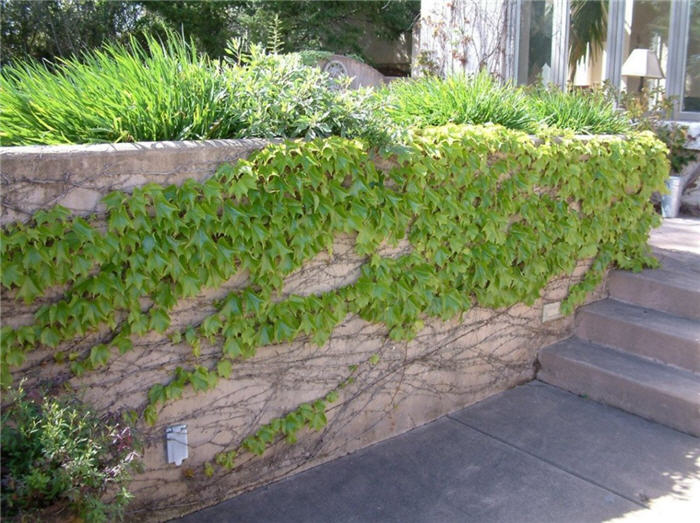| Botanical Name: Parthenocissus quinquefolia | |
| Common Name: Virginia Creeper |

-
Anatomy
-
Culture
-
Design
Plant Type
Ground cover, Vine
Height Range
25-40'
Flower Color
White
Flower Season
Spring
Leaf Color
Green, Red
Bark Color
Brown
Fruit Color
Blue, Purple
Fruit Season
Winter, Fall
Sun
Full, Half, Shade
Water
Low
Growth Rate
Fast
Soil Type
Sandy, Clay, Loam, Rocky, Unparticular
Soil Condition
Average, Rich, Poor, Well-drained, Moist, Dry
Soil pH
Neutral
Adverse Factors
Invasive
Design Styles
English Cottage, Ranch, Tropical, Woodland
Accenting Features
Fall Color
Seasonal Interest
Winter, Fall
Location Uses
Background
Special Uses
Erosion Control, Screen
Attracts Wildlife
Birds
Information by: Stephanie Duer
Photographer: Connon Nursery/Sortomme
Photographer: Connon Nursery/Sortomme
-
Description
-
Notes
This deciduous vine grows fast, adhering itself to fences, structures, or any object that does not move fast enough out of the way. It has glossy green leaves that have five lobes (hence the name); red fall color; and colorful purple fruit on bright red stems that the birds are mad for. Not for the small garden, but very tough.
Controlling Virginia Creeper is a persistent, long term commitment. Keep it out of trees, as it will cover the foliage, preventing photosynthesis, and the weight of the vine could result in breaking tree limbs. Can grow 40 feet or more. Grow in any soil, any where.